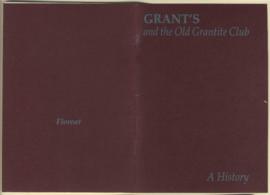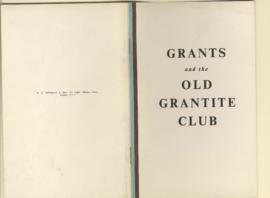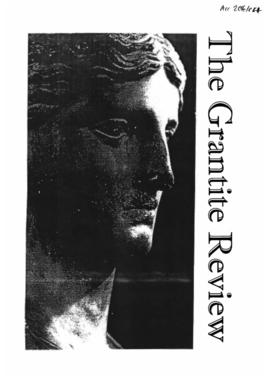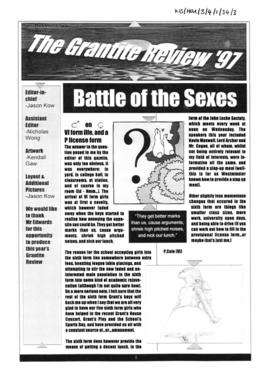- GB 2014 WS-02-ORA-009
- Item
- 2013-07-09
[00:20] First impressions of Westminster School. [00:38] Masters very nice. Challenge anecdote. [01:09] Day boy in Ashburnham. [01:58] Lushington as form tutor. [02:12] Leaving to have operation. Away for a long time. [02:50] Couldn’t play football. Lots of swimming instead. [03:10] Commute from Putney. [03:30] Masters. John Morton Wilson. Latin prose. [04:30] Enjoyed science. [05:04] Cyril John Crumpler, science Master. Mr Foxcroft. [05:35] Another pupil by the name of Hunt, connecting water tap to gas tap. Fire brigade called. [06:18] Experiments. [06:30] False roof up school. Latin prayers. [07:07] Walter Hamilton. Greek. [07:48] Joined the Corps. War still felt close. [08:10] Mr Brock, housemaster of Ashburnham. Telling stories of war. [08:50] Demonstrations at Hyde Park Corner on Sundays. [09:05] Art teacher. Mr Spore. Wanted to talk about naval history. [09:42] Francis Rause, housemaster of Busby’s. Major in war. Told stories, told back to him in House play at the end of term. [11:10] Matthew Orr, played piano in Busby’s. [11:52] Boys climbing lifts in Busby’s. Used later while stuck in lift in France. [13:22] Noel Picarda, used to go up to Hyde Park Corner with collar back to front and give mock religious sermons. [14:15] Talks at political literary (John Locke) society. C.P. Snow, speaking about Russia. Ted Heath. [16:32] Choice of science. [16:43] Dropped Greek to do science, mother horrified. [16:55] 3 In Maths Sixth. 27 in Classics. [17:25] College scholars primarily classicists. [17:49] Theo Zinn classicist. Did music appreciation. [18:40] Classists saw themselves as the elite in the school. Seemed to be the way things were, no real resentment. [19:45] Labs in Sutcliffe’s on Great College Street. Nothing to compare them to. Not pristine, didn’t feel like it was a disaster to take risks. [20:40] Slide rules for calculations. [21:08] Lack of health and safety. No safety glasses. [21:30] Not too much building work. Felt done. Dorms of 17 in Busby’s. Throwing slippers. [22:15] Fagging. Appalling. Abolished at sixth form. Busby’s first house to do so. [22:44] Sixth formers only ones to use the lift. As prefect, let everyone. [23:40] Football. C.C.P. Williams. Broke a window in Vincent Square. Westminster not particularly successful in sport. Played Chelsea Colts once a year. [25:20] Sanger. Playing cricket. [25:50] Walter Hamilton. Left for Rugby. John Carleton’s takeover. Didn’t have the respect Hamilton had. [26:55] Confirmation, conversation with Head Master. [28:05] Respect for Walter Hamilton. Strong character. Carleton charming, liked by parents. Not by students. Surprising Westminster did as well as it did under him. [29:25] Lushington speaking after Carleton in staff meetings. [30:33] Fisher, teaching mathematics. Had been a bas headmaster of Busby’s, but good teacher of mathematics. Wanted students to go to Cambridge, measured progress by it. Deterministic. Connecting mathematics to the world. [32:27] Adolph Prag. Helped with archives. From Germany. Mathematics as patterns and logic and beauty. Class of three, later four. Had to explain proof on blackboard. [33:35] Henry Christie, master of the scholars. Keen on rowing. [34:05] Reading divorce cases in the Daily Telegraph. Westminster handled change easily. [35:10] Going to parliament. Concerts at Festival Hall. [35:48] Strength of connection between Westminster and Trinity. 10 boys in same year passed up to Trinity. Not much of a Westminster society there. [36:55] Went to Trinity to follow footsteps of grandfather and uncle. [37:20] Dan McKenzie most brilliant in year. One of the discoverers of continental drift. Divinity class. Dan state disbelief in God ‘because I am a scientist’. Became Cambridge professor and Fellow of Royal Society. [40:42] Science as a group. Keeley, gave classes in Urdu. [42:05] Science education post-Westminster. Dropped Greek. Science was a way of connecting things together. Royal Institute lectures. Felt inferior to scientists, decided to go into engineering. [43:45] At Cambridge. Engineering as ‘mechanical sciences’. PhD. More interested in environmental matters. Turbulent flows. Supposed to go to America, but met wife and didn’t want to leave her behind. [47:00] In America during Vietnam war. March on Washington. Science and politics. [48:18] Most Old Westminsters had standard careers. [51:22] The usefulness of scientific ideas. [53:10] More public understanding of science. More media coverage. [56:00] Much wider range of A Levels now, less specialised. [56:40] Far more pupils doing science at A Level. [57:10] Changes in science teaching. Less time to just experiment. Broader syllabus now, but strictly organised. [01:00:05] St Paul’s closest UK comparison to Westminster. Special. [01:10:18] Westminster very institutional. Used to it. Boarding school from the age of nine or ten. One younger brother enjoyed it, but youngest did not.




